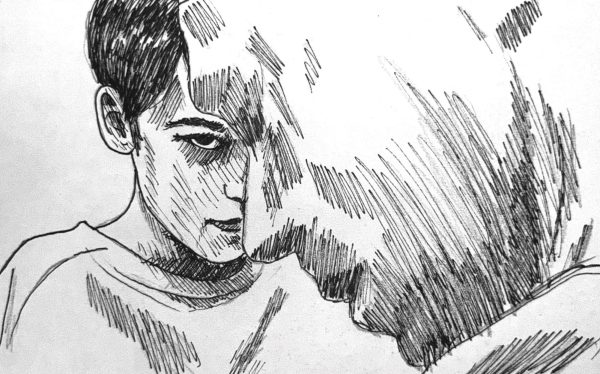Maybe we’re missing the point: Two novels that help us reframe rest
Marilynne Robinson’s “Gilead” and Jane Austen’s “Emma” can teach students about the beauty in the little things
We as Trinity students all know the feeling that creeps in throughout November and the first week of December: mounting panic as the list of things to do before winter break steadily grows longer and time is running out.
In the midst of this crunch time, a sense of rest feels immeasurably far away. I think rest seems unfeasible because we define rest incorrectly. We confuse escaping — sleeping, clicking the “Yes, I am still watching” button on Netflix, parties, social media, avoidance — with rest. Traditionally the idea of rest has aligned with the idea of stopping in the middle of whatever you’re doing and looking up and around you.
We equate rest with escaping because we equate our current surroundings with our exhaustion. Blaming our surroundings can lead us to constantly wish that things were different. If only school, friends, family, and life would slow down, then we could rest. These beliefs automatically limit the places where we allow ourselves to find rest, ultimately perpetuating the illusion (maybe even the lie) that resting is impossible where we are. Believing rest is impossible where we are further fuels our disillusionment that says nothing of value or anything worth our attention could happen around us. Constantly wishing for things to be different, for things to slow down because then we could rest, perpetuates the illusion (maybe even the lie) that resting is impossible right now, that nothing of value, nothing worth beholding, happens where we are. And this constant grabbing and reaching only fuels our exhaustion because the finish line is always just beyond our reach. Winter break ends and we start all over again in the spring. We graduate and we look for jobs. Life can feel like a Sisyphean curse we live every day as the proverbial boulder we push up the mountainside sits at the bottom with the start of each new day.
I want to offer two novels, Marilynne Robinson’s “Gilead” and Jane Austen’s “Emma,” as signs telling us that extraordinary and beautiful things happen in our everyday. And I think recognizing the gifts that surround us every day could be the beginning of rest.
Published in 2004, “Gilead” by Marilynne Robinson invites readers into the mind of the aging Reverend John Ames as he writes journal entries to his young son. Robinson’s fiction has long stood as a hallmark of the beauty and significance that can be imbued into the most quotidian experiences. We have been trained to celebrate only the big victories, the things that disrupt or significantly shift our lives, but Robinson tries to slowly shift our focus towards the ordinary by weaving together obviously significant events in Ames’ life and mundane ones. We hear Rev. Ames’ history, from living with his grandfather (also called Rev. John Ames) after he returned from the American Civil War having lost his right eye, to how he fell in love with his son’s mother/second wife. We also see Rev. Ames reflect on his son playing with bubbles and their cat, on a young couple walking in the rain to church on a Sunday. Rev. Ames is able to recognize the weightiness, maybe even the glory, of the every day and consequently receives what he has been given with both sorrow and joy.
“Emma,” like Austen’s other novels, contains more than meets the eye. The longest of Austen’s novels, it often feels impossible to get through because characters just seem to do nothing but talk a lot, and arguably Emma is fairly unlikable. Emma’s feelings of imprisonment, boredom, and longing almost reach through the page and implant themselves in the reader, convincing us along with Emma that we simply have to carry those things which feel like burdens. Miss Bates bears the brunt of Emma’s annoyance, having to deal with her long-winded, meaningless speeches, but throughout the novel Miss Bates becomes an integral piece to the joys of ‘smallness.’ Emma tries to liven things up by playing matchmaker and creating stories in her head, but she learns the limits of her own imagination as she still inhabits the physical world. The novel sits between the benefits and the detriments of mundanity, and while it fails to wholly embrace one or the other, “Emma” highlights the pattern of discontent that is driven by an inability to see the goodness around us.
Rest is not synonymous with escape, with avoiding responsibilities or disengaging. The things that weigh on us do not disappear when we choose to ignore them. Despite our efforts, we know we have to deal with them eventually, and then we’re trapped in dread.
Quoting author J.R.R. Tolkien, talk show host and comedian Stephen Colbert said in a 2015 “GQ” interview, “What punishments of God are not gifts?” The pieces of Colbert’s life that he wishes did not happen are the same pieces that he points to as places of God’s counterintuitive grace that descends to meet us in our worst moments. Yet it is incredibly difficult to be grateful for those things that cause our greatest pains.
Picking and choosing what we receive as good gifts ultimately fuels hopelessness because we begin to doubt that things will ever look different. But what if, as I think “Gilead” and “Emma” try to say, the places, the experiences, the classes, the responsibilities we most want to escape are the stages where beauty is unfolding most clearly? And we often miss the glory of that beauty because it’s too ordinary.
Rest comes when we are fully known and fully loved, when we remember what is true regardless of whether we complete all our assignments or attend all of a club’s meetings, whether we get the best internship or step away from school. Rest meets us where we are, even as we think it’s a million miles away.

My name is Ayden Smith and I am a junior studying English here at Trinity. I am from Friendswood, Texas, and grew up coming to San Antonio for little vacations....






Renae Simons • Dec 19, 2021 at 5:56 am
Wonderfully written. This is a great reflection of living in the present and being aware of our ordinary blessings or gifts from God.